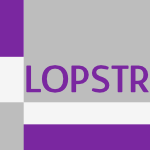78 papers:
 ITiCSE-2015-PalI #programming
ITiCSE-2015-PalI #programming- Classroom Versus Screencast for Native Language Learners: Effect of Medium of Instruction on Knowledge of Programming (YP, SI), pp. 290–295.
 HIMI-IKC-2015-IshiiMKS #clustering #education #topic
HIMI-IKC-2015-IshiiMKS #clustering #education #topic- A Topic Model for Clustering Learners Based on Contents in Educational Counseling (TI, SM, KK, YS), pp. 323–331.
 LCT-2015-Chu #editing
LCT-2015-Chu #editing- Dual-Coding Strategy for the Chinese Characters Learners: Chinese PCS Editor (CNC), pp. 43–49.
 LCT-2015-DalipiYK #analysis #performance #semantics #using
LCT-2015-DalipiYK #analysis #performance #semantics #using- Enhancing the Learner’s Performance Analysis Using SMEUS Semantic E-learning System and Business Intelligence Technologies (FD, SYY, ZK), pp. 208–217.
 LCT-2015-FatahiMZ #performance
LCT-2015-FatahiMZ #performance- A Computational Model to Determine Desirability of Events Based on Personality for Performance Motivational Orientation Learners (SF, HM, ANZ), pp. 227–237.
 LCT-2015-FlanaganYSH #fault #predict
LCT-2015-FlanaganYSH #fault #predict- Prediction of Learner Native Language by Writing Error Pattern (BF, CY, TS, SH), pp. 87–96.
 LCT-2015-PhamNT #education #music #recognition
LCT-2015-PhamNT #education #music #recognition- Virtual Music Teacher for New Music Learners with Optical Music Recognition (VKP, HDN, MTT), pp. 415–426.
 ICML-2015-HugginsT
ICML-2015-HugginsT- Risk and Regret of Hierarchical Bayesian Learners (JH, JT), pp. 1442–1451.
 ITiCSE-2014-MishraBIM #information management
ITiCSE-2014-MishraBIM #information management- Effect of a 2-week scratch intervention in CS1 on learners with varying prior knowledge (SM, SB, SI, SM), pp. 45–50.
 CHI-2014-LuiKAQS #simulation
CHI-2014-LuiKAQS #simulation- Supporting learners in collecting and exploring data from immersive simulations in collective inquiry (ML, ACK, AA, CQ, JDS), pp. 2103–2112.
 HIMI-AS-2014-MatsuiHKA #behaviour #case study #education #learning
HIMI-AS-2014-MatsuiHKA #behaviour #case study #education #learning- A Study on Exploration of Relationships between Behaviors and Mental States of Learners for Value Co-creative Education and Learning Environment (TM, YH, KK, TA), pp. 69–79.
 HIMI-AS-2014-UeiFKNKS #design #education #evaluation #learning
HIMI-AS-2014-UeiFKNKS #design #education #evaluation #learning- Learning Effect Evaluation of an Educational Tool for Product-Service System Design Based on Learner Viewpoints (KU, TF, AK, YN, KK, YS), pp. 643–652.
 LCT-NLE-2014-MansorAA #design #personalisation #profiling
LCT-NLE-2014-MansorAA #design #personalisation #profiling- Slow Learner Children Profiling for Designing Personalized eBook (MM, WAWA, NA), pp. 302–311.
 LCT-NLE-2014-Piki #collaboration #learning #process #question
LCT-NLE-2014-Piki #collaboration #learning #process #question- Learner Engagement in Computer-Supported Collaborative Learning Activities: Natural or Nurtured? (AP), pp. 107–118.
 LCT-TRE-2014-Timotheou
LCT-TRE-2014-Timotheou- Reflective Thinking: Exploring Blog Use by Adult Learners (MMT), pp. 460–466.
 LCT-TRE-2014-Ward #human-computer #requirements
LCT-TRE-2014-Ward #human-computer #requirements- HCI Requirements for Young Primary School CALL Learners (MW), pp. 339–348.
 CIKM-2014-WenR #behaviour #identification #mining #online
CIKM-2014-WenR #behaviour #identification #mining #online- Identifying Latent Study Habits by Mining Learner Behavior Patterns in Massive Open Online Courses (MW, CPR), pp. 1983–1986.
 ICML-c1-2014-ChenLL #multi #online #problem
ICML-c1-2014-ChenLL #multi #online #problem- Boosting with Online Binary Learners for the Multiclass Bandit Problem (STC, HTL, CJL), pp. 342–350.
 ICPR-2014-KunwarPB #network #online #recognition
ICPR-2014-KunwarPB #network #online #recognition- Semi-supervised Online Bayesian Network Learner for Handwritten Characters Recognition (RK, UP, MB), pp. 3104–3109.
 RecSys-2014-Mayeku #personalisation #recommendation
RecSys-2014-Mayeku #personalisation #recommendation- Enhancing personalization and learner engagement through context-aware recommendation in TEL (BM), pp. 413–415.
 SAC-2014-SeffrinRJ #algebra #network
SAC-2014-SeffrinRJ #algebra #network- A dynamic bayesian network for inference of learners’ algebraic knowledge (HMS, GLR, PAJ), pp. 235–240.
 DUXU-CXC-2013-YouX #testing #usability
DUXU-CXC-2013-YouX #testing #usability- A Usability Testing of Chinese Character Writing System for Foreign Learners (MY, YJX), pp. 149–157.
 HCI-AS-2013-YamaguchiSYNSM #interface
HCI-AS-2013-YamaguchiSYNSM #interface- Zoom Interface with Dynamic Thumbnails Providing Learners with Companionship through Videostreaming (TY, HS, MY, YN, HS, TM), pp. 521–528.
 HIMI-LCCB-2013-YoshidaOSNSH #assessment #comprehension #concept #using
HIMI-LCCB-2013-YoshidaOSNSH #assessment #comprehension #concept #using- Instantaneous Assessment of Learners’ Comprehension for Lecture by Using Kit-Build Concept Map System (KY, TO, KS, YN, MS, TH), pp. 175–181.
 OCSC-2013-WangA #network #social
OCSC-2013-WangA #network #social- Adult Learners and Their Use of Social Networking Sites (Y(W, JA), pp. 222–229.
 ICEIS-v2-2013-Vagale
ICEIS-v2-2013-Vagale- ePortfolio Data Utilization in LMS Learner Model (VV), pp. 489–496.
 ICML-c3-2013-SunZ #evaluation #order #representation
ICML-c3-2013-SunZ #evaluation #order #representation- Saving Evaluation Time for the Decision Function in Boosting: Representation and Reordering Base Learner (PS, JZ), pp. 933–941.
 POPL-2013-GordonABCGNRR #reasoning
POPL-2013-GordonABCGNRR #reasoning- A model-learner pattern for bayesian reasoning (ADG, MA, JB, GC, TG, AVN, SKR, CVR), pp. 403–416.
 ICPR-2012-AbouelenienY #analysis #fault #named #performance
ICPR-2012-AbouelenienY #analysis #fault #named #performance- SampleBoost: Improving boosting performance by destabilizing weak learners based on weighted error analysis (MA, XY), pp. 585–588.
 LOPSTR-2012-Zinn #program analysis #reasoning
LOPSTR-2012-Zinn #program analysis #reasoning- Program Analysis and Manipulation to Reproduce Learners’ Erroneous Reasoning (CZ), pp. 228–243.
 CSEET-2011-TsukamotoTNM #analysis #motivation #programming
CSEET-2011-TsukamotoTNM #analysis #motivation #programming- Analysis of the motivation of learners in the in-house training of programming in Japanese ICT industries (HT, YT, HN, KiM), pp. 121–128.
 ITiCSE-2011-KrishnaswamyK
ITiCSE-2011-KrishnaswamyK- Enhancing learner capability: success of it@school project, Kerala, region of India (GK, VSK), p. 383.
 DUXU-v1-2011-Hasan #multi #online #visual notation #word
DUXU-v1-2011-Hasan #multi #online #visual notation #word- Multi-language Online Word Processor for Learners and the Visually Impaired (SIH), pp. 256–260.
 HCI-UA-2011-HsuC #approach #behaviour #navigation
HCI-UA-2011-HsuC #approach #behaviour #navigation- Associating Learners’ Cognitive Style with Their Navigation Behaviors: A Data-Mining Approach (YCH, SYC), pp. 27–34.
 HCI-UA-2011-LinHLYH #mining #using
HCI-UA-2011-LinHLYH #mining #using- Using Grounded Theory and Text Mining to Find Interesting Reading Materials for Slow EFL Learners (YCL, ClH, MHL, HFY, CFH), pp. 77–85.
 HIMI-v1-2011-LinBK #biology #design #education #multi #simulation
HIMI-v1-2011-LinBK #biology #design #education #multi #simulation- Learner-Centered Methodology for Designing and Developing Multimedia Simulation for Biology Education (CCL, MB, KK), pp. 20–29.
 ITiCSE-2010-Friese #logic programming
ITiCSE-2010-Friese #logic programming- Measuring of and reacting to learners’ progress in logic programming courses (SF), pp. 152–154.
 ITiCSE-2010-KiesmullerSBR #identification #online #pattern matching #pattern recognition #problem #recognition #using
ITiCSE-2010-KiesmullerSBR #identification #online #pattern matching #pattern recognition #problem #recognition #using- Online identification of learner problem solving strategies using pattern recognition methods (UK, SS, TB, KR), pp. 274–278.
 CHI-2010-DavidoffZD #coordination #how #product line
CHI-2010-DavidoffZD #coordination #how #product line- How routine learners can support family coordination (SD, JZ, AKD), pp. 2461–2470.
 SEKE-2010-Yeh #animation #human-computer #interactive #learning
SEKE-2010-Yeh #animation #human-computer #interactive #learning- The effects of human-computer interaction modes for weak learners in an animation learning environment (YFY), pp. 18–23.
 CSEET-2009-BoerFV #approach #architecture #community #education
CSEET-2009-BoerFV #approach #architecture #community #education- A Community of Learners Approach to Software Architecture Education (RCdB, RF, HvV), pp. 190–197.
 ITiCSE-2009-KiesmullerB #algorithm #automation #identification #problem
ITiCSE-2009-KiesmullerB #algorithm #automation #identification #problem- Automatically identifying learners’ problem solving strategies in-process solving algorithmic problems (UK, TB), p. 354.
 HCI-AUII-2009-DMelloCFG
HCI-AUII-2009-DMelloCFG- Responding to Learners’ Cognitive-Affective States with Supportive and Shakeup Dialogues (SKD, SDC, KF, ACG), pp. 595–604.
 HCI-VAD-2009-MazzolaM #adaptation #learning #student
HCI-VAD-2009-MazzolaM #adaptation #learning #student- Supporting Learners in Adaptive Learning Environments through the Enhancement of the Student Model (LM, RM), pp. 166–175.
 IDGD-2009-BoseS #hypermedia
IDGD-2009-BoseS #hypermedia- The Use of Hypertext as a Vocabulary Acquisition Strategy for English as Second Language Learners (DB, DS), pp. 147–155.
 ICML-2009-DekelS #education
ICML-2009-DekelS #education- Good learners for evil teachers (OD, OS), pp. 233–240.
 MLDM-2009-Calliess #on the
MLDM-2009-Calliess #on the- On Fixed Convex Combinations of No-Regret Learners (JPC), pp. 494–504.
 SAC-2009-Bouarab-DahmaniSCC #approach #automation #evaluation
SAC-2009-Bouarab-DahmaniSCC #approach #automation #evaluation- Learners automated evaluation with the ODALA approach (FBD, MSM, CC, PJC), pp. 98–103.
 CHI-2008-MoherUBSM #authentication #design #interactive #named
CHI-2008-MoherUBSM #authentication #design #interactive #named- WallCology: designing interaction affordances for learner engagement in authentic science inquiry (TM, BU, DB, BLS, PM), pp. 163–172.
 ICPR-2008-ZhuBQ #lazy evaluation #learning
ICPR-2008-ZhuBQ #lazy evaluation #learning- Bagging very weak learners with lazy local learning (XZ, CB, WQ), pp. 1–4.
 RecSys-2008-DrachslerHK #learning #navigation
RecSys-2008-DrachslerHK #learning #navigation- Navigation support for learners in informal learning environments (HD, HGKH, RK), pp. 303–306.
 IJCAR-2008-UrbanSPV #automation #reasoning #semantics
IJCAR-2008-UrbanSPV #automation #reasoning #semantics- MaLARea SG1- Machine Learner for Automated Reasoning with Semantic Guidance (JU, GS, PP, JV), pp. 441–456.
 CSEET-2007-Armarego #learning
CSEET-2007-Armarego #learning- Learning from Reflection: Practitioners as Adult Learners (JA), pp. 55–63.
 HCI-AS-2007-Hsu #performance #visual notation
HCI-AS-2007-Hsu #performance #visual notation- The Effects of Visual Versus Verbal Metaphors on Novice and Expert Learners’ Performance (YcH), pp. 264–269.
 HCI-AS-2007-SunH #case study
HCI-AS-2007-SunH #case study- A Study of Learners’ Perceptions of the Interactivity of Web-Based Instruction (JnS, YcH), pp. 351–360.
 HIMI-IIE-2007-KohL #case study #distance #education #effectiveness #scalability
HIMI-IIE-2007-KohL #case study #distance #education #effectiveness #scalability- The Effectiveness of Educational Technology: A Preliminary Study of Learners from Small and Large Power Distance Cultures (EK, JL), pp. 384–393.
 ITiCSE-2006-Lauer #algorithm #interactive #visualisation
ITiCSE-2006-Lauer #algorithm #interactive #visualisation- Learner interaction with algorithm visualizations: viewing vs. changing vs. constructing (TL), pp. 202–206.
 MSR-2006-KnabPB #fault #predict #source code
MSR-2006-KnabPB #fault #predict #source code- Predicting defect densities in source code files with decision tree learners (PK, MP, AB), pp. 119–125.
 ICEIS-HCI-2006-Bakhtyari #automation #feedback #generative #ontology #student #using
ICEIS-HCI-2006-Bakhtyari #automation #feedback #generative #ontology #student #using- Automatic Feedback Generation — Using Ontology in an Intelligent Tutoring System for Both Learner and Author Based on Student Model (PB), pp. 116–123.
 ICEIS-HCI-2006-Patokorpi #learning
ICEIS-HCI-2006-Patokorpi #learning- Constructivist Instructional Principles, Learner Psychology and Technological Enablers of Learning (EP), pp. 103–109.
 ICML-2005-RosellHRP #learning #why
ICML-2005-RosellHRP #learning #why- Why skewing works: learning difficult Boolean functions with greedy tree learners (BR, LH, SR, DP), pp. 728–735.
 CHI-2004-LuchiniQS #design #guidelines #tool support
CHI-2004-LuchiniQS #design #guidelines #tool support- Design guidelines for learner-centered handheld tools (KL, CQ, ES), pp. 135–142.
 CHI-2003-LuchiniQS #case study #concept #design
CHI-2003-LuchiniQS #case study #concept #design- Pocket PiCoMap: a case study in designing and assessing a handheld concept mapping tool for learners (KL, CQ, ES), pp. 321–328.
 VLDB-2002-LimWPVP #estimation #markov #named #online #self #xml
VLDB-2002-LimWPVP #estimation #markov #named #online #self #xml- XPathLearner: An On-line Self-Tuning Markov Histogram for XML Path Selectivity Estimation (LL, MW, SP, JSV, RP), pp. 442–453.
 CSEET-2002-SeffahG #education #re-engineering
CSEET-2002-SeffahG #education #re-engineering- Learner-Centered Software Engineering Education: From Resources to Skills and Pedagogical Patterns (AS, PG), pp. 14–21.
 KDD-2002-JoshiAK #predict #question
KDD-2002-JoshiAK #predict #question- Predicting rare classes: can boosting make any weak learner strong? (MVJ, RCA, VK), pp. 297–306.
 RE-2002-WooR #approach #automation #lightweight #relational #reuse #specification #using
RE-2002-WooR #approach #automation #lightweight #relational #reuse #specification #using- Reuse of Scenario Specifications Using an Automated Relational Learner: A Lightweight Approach (HGW, WNR), pp. 173–180.
 KDD-2001-YamanishiT
KDD-2001-YamanishiT- Discovering outlier filtering rules from unlabeled data: combining a supervised learner with an unsupervised learner (KY, JiT), pp. 389–394.
 ICML-2000-Mitchell
ICML-2000-Mitchell- “Boosting” a Positive-Data-Only Learner (ARM), pp. 607–614.
 CHI-1999-QuintanaECWS #analysis #case study #design #named #process
CHI-1999-QuintanaECWS #analysis #case study #design #named #process- Symphony: A Case Study in Extending Learner-Centered Design through Process Space Analysis (CQ, JE, AC, HKW, ES), pp. 473–480.
 ICML-1999-Harries
ICML-1999-Harries- Boosting a Strong Learner: Evidence Against the Minimum Margin (MBH), pp. 171–180.
 CHI-1998-JacksonKS #adaptation #design #interactive #learning
CHI-1998-JacksonKS #adaptation #design #interactive #learning- The Design of Guided Learner-Adaptable Scaffolding in Interactive Learning Environments (SLJ, JK, ES), pp. 187–194.
 CHI-1998-WallaceSKBHHKKPRR #design #education #named
CHI-1998-WallaceSKBHHKKPRR #design #education #named- ARTEMIS: Learner-Centered Design of an Information Seeking Environment for K-12 Education (RW, ES, JK, NB, JH, HEH, DK, EK, GP, DR, OR), pp. 195–202.
 CHI-1996-SolowayJKQRSSSES #case study #design #learning
CHI-1996-SolowayJKQRSSSES #case study #design #learning- Learning Theory in Practice: Case Studies of Learner-Centered Design (ES, SLJ, JK, CQ, JR, JS, SJS, SS, JE, NS), pp. 189–196.
 ICML-1995-ClearyT #distance #using
ICML-1995-ClearyT #distance #using- K*: An Instance-based Learner Using and Entropic Distance Measure (JGC, LET), pp. 108–114.
 SAC-1995-Boulet #distance #education
SAC-1995-Boulet #distance #education- Learner-controlled situation with distance education (MMB), pp. 36–39.
 HCI-SHI-1993-Gautsch #analysis #architecture #difference #hypermedia
HCI-SHI-1993-Gautsch #analysis #architecture #difference #hypermedia- An Analysis of Hypermedia Program Architecture with Individual Differences of Learners (SG), pp. 482–487.
 ICML-1993-VanLehnJ #problem
ICML-1993-VanLehnJ #problem- Better Learners Use Analogical Problem Solving Sparingly (KV, RMJ), pp. 338–345.
 ITiCSE-2015-PalI #programming
ITiCSE-2015-PalI #programming HIMI-IKC-2015-IshiiMKS #clustering #education #topic
HIMI-IKC-2015-IshiiMKS #clustering #education #topic LCT-2015-Chu #editing
LCT-2015-Chu #editing LCT-2015-DalipiYK #analysis #performance #semantics #using
LCT-2015-DalipiYK #analysis #performance #semantics #using LCT-2015-FatahiMZ #performance
LCT-2015-FatahiMZ #performance LCT-2015-FlanaganYSH #fault #predict
LCT-2015-FlanaganYSH #fault #predict LCT-2015-PhamNT #education #music #recognition
LCT-2015-PhamNT #education #music #recognition ICML-2015-HugginsT
ICML-2015-HugginsT ITiCSE-2014-MishraBIM #information management
ITiCSE-2014-MishraBIM #information management CHI-2014-LuiKAQS #simulation
CHI-2014-LuiKAQS #simulation HIMI-AS-2014-MatsuiHKA #behaviour #case study #education #learning
HIMI-AS-2014-MatsuiHKA #behaviour #case study #education #learning HIMI-AS-2014-UeiFKNKS #design #education #evaluation #learning
HIMI-AS-2014-UeiFKNKS #design #education #evaluation #learning LCT-NLE-2014-MansorAA #design #personalisation #profiling
LCT-NLE-2014-MansorAA #design #personalisation #profiling LCT-NLE-2014-Piki #collaboration #learning #process #question
LCT-NLE-2014-Piki #collaboration #learning #process #question LCT-TRE-2014-Timotheou
LCT-TRE-2014-Timotheou LCT-TRE-2014-Ward #human-computer #requirements
LCT-TRE-2014-Ward #human-computer #requirements CIKM-2014-WenR #behaviour #identification #mining #online
CIKM-2014-WenR #behaviour #identification #mining #online ICML-c1-2014-ChenLL #multi #online #problem
ICML-c1-2014-ChenLL #multi #online #problem ICPR-2014-KunwarPB #network #online #recognition
ICPR-2014-KunwarPB #network #online #recognition RecSys-2014-Mayeku #personalisation #recommendation
RecSys-2014-Mayeku #personalisation #recommendation SAC-2014-SeffrinRJ #algebra #network
SAC-2014-SeffrinRJ #algebra #network DUXU-CXC-2013-YouX #testing #usability
DUXU-CXC-2013-YouX #testing #usability HCI-AS-2013-YamaguchiSYNSM #interface
HCI-AS-2013-YamaguchiSYNSM #interface HIMI-LCCB-2013-YoshidaOSNSH #assessment #comprehension #concept #using
HIMI-LCCB-2013-YoshidaOSNSH #assessment #comprehension #concept #using OCSC-2013-WangA #network #social
OCSC-2013-WangA #network #social ICEIS-v2-2013-Vagale
ICEIS-v2-2013-Vagale ICML-c3-2013-SunZ #evaluation #order #representation
ICML-c3-2013-SunZ #evaluation #order #representation POPL-2013-GordonABCGNRR #reasoning
POPL-2013-GordonABCGNRR #reasoning ICPR-2012-AbouelenienY #analysis #fault #named #performance
ICPR-2012-AbouelenienY #analysis #fault #named #performance LOPSTR-2012-Zinn #program analysis #reasoning
LOPSTR-2012-Zinn #program analysis #reasoning CSEET-2011-TsukamotoTNM #analysis #motivation #programming
CSEET-2011-TsukamotoTNM #analysis #motivation #programming ITiCSE-2011-KrishnaswamyK
ITiCSE-2011-KrishnaswamyK DUXU-v1-2011-Hasan #multi #online #visual notation #word
DUXU-v1-2011-Hasan #multi #online #visual notation #word HCI-UA-2011-HsuC #approach #behaviour #navigation
HCI-UA-2011-HsuC #approach #behaviour #navigation HCI-UA-2011-LinHLYH #mining #using
HCI-UA-2011-LinHLYH #mining #using HIMI-v1-2011-LinBK #biology #design #education #multi #simulation
HIMI-v1-2011-LinBK #biology #design #education #multi #simulation ITiCSE-2010-Friese #logic programming
ITiCSE-2010-Friese #logic programming ITiCSE-2010-KiesmullerSBR #identification #online #pattern matching #pattern recognition #problem #recognition #using
ITiCSE-2010-KiesmullerSBR #identification #online #pattern matching #pattern recognition #problem #recognition #using CHI-2010-DavidoffZD #coordination #how #product line
CHI-2010-DavidoffZD #coordination #how #product line SEKE-2010-Yeh #animation #human-computer #interactive #learning
SEKE-2010-Yeh #animation #human-computer #interactive #learning CSEET-2009-BoerFV #approach #architecture #community #education
CSEET-2009-BoerFV #approach #architecture #community #education ITiCSE-2009-KiesmullerB #algorithm #automation #identification #problem
ITiCSE-2009-KiesmullerB #algorithm #automation #identification #problem HCI-AUII-2009-DMelloCFG
HCI-AUII-2009-DMelloCFG HCI-VAD-2009-MazzolaM #adaptation #learning #student
HCI-VAD-2009-MazzolaM #adaptation #learning #student IDGD-2009-BoseS #hypermedia
IDGD-2009-BoseS #hypermedia ICML-2009-DekelS #education
ICML-2009-DekelS #education MLDM-2009-Calliess #on the
MLDM-2009-Calliess #on the SAC-2009-Bouarab-DahmaniSCC #approach #automation #evaluation
SAC-2009-Bouarab-DahmaniSCC #approach #automation #evaluation CHI-2008-MoherUBSM #authentication #design #interactive #named
CHI-2008-MoherUBSM #authentication #design #interactive #named ICPR-2008-ZhuBQ #lazy evaluation #learning
ICPR-2008-ZhuBQ #lazy evaluation #learning RecSys-2008-DrachslerHK #learning #navigation
RecSys-2008-DrachslerHK #learning #navigation IJCAR-2008-UrbanSPV #automation #reasoning #semantics
IJCAR-2008-UrbanSPV #automation #reasoning #semantics CSEET-2007-Armarego #learning
CSEET-2007-Armarego #learning HCI-AS-2007-Hsu #performance #visual notation
HCI-AS-2007-Hsu #performance #visual notation HCI-AS-2007-SunH #case study
HCI-AS-2007-SunH #case study HIMI-IIE-2007-KohL #case study #distance #education #effectiveness #scalability
HIMI-IIE-2007-KohL #case study #distance #education #effectiveness #scalability ITiCSE-2006-Lauer #algorithm #interactive #visualisation
ITiCSE-2006-Lauer #algorithm #interactive #visualisation MSR-2006-KnabPB #fault #predict #source code
MSR-2006-KnabPB #fault #predict #source code ICEIS-HCI-2006-Bakhtyari #automation #feedback #generative #ontology #student #using
ICEIS-HCI-2006-Bakhtyari #automation #feedback #generative #ontology #student #using ICEIS-HCI-2006-Patokorpi #learning
ICEIS-HCI-2006-Patokorpi #learning ICML-2005-RosellHRP #learning #why
ICML-2005-RosellHRP #learning #why CHI-2004-LuchiniQS #design #guidelines #tool support
CHI-2004-LuchiniQS #design #guidelines #tool support CHI-2003-LuchiniQS #case study #concept #design
CHI-2003-LuchiniQS #case study #concept #design VLDB-2002-LimWPVP #estimation #markov #named #online #self #xml
VLDB-2002-LimWPVP #estimation #markov #named #online #self #xml CSEET-2002-SeffahG #education #re-engineering
CSEET-2002-SeffahG #education #re-engineering KDD-2002-JoshiAK #predict #question
KDD-2002-JoshiAK #predict #question RE-2002-WooR #approach #automation #lightweight #relational #reuse #specification #using
RE-2002-WooR #approach #automation #lightweight #relational #reuse #specification #using KDD-2001-YamanishiT
KDD-2001-YamanishiT ICML-2000-Mitchell
ICML-2000-Mitchell CHI-1999-QuintanaECWS #analysis #case study #design #named #process
CHI-1999-QuintanaECWS #analysis #case study #design #named #process ICML-1999-Harries
ICML-1999-Harries CHI-1998-JacksonKS #adaptation #design #interactive #learning
CHI-1998-JacksonKS #adaptation #design #interactive #learning CHI-1998-WallaceSKBHHKKPRR #design #education #named
CHI-1998-WallaceSKBHHKKPRR #design #education #named CHI-1996-SolowayJKQRSSSES #case study #design #learning
CHI-1996-SolowayJKQRSSSES #case study #design #learning ICML-1995-ClearyT #distance #using
ICML-1995-ClearyT #distance #using SAC-1995-Boulet #distance #education
SAC-1995-Boulet #distance #education HCI-SHI-1993-Gautsch #analysis #architecture #difference #hypermedia
HCI-SHI-1993-Gautsch #analysis #architecture #difference #hypermedia ICML-1993-VanLehnJ #problem
ICML-1993-VanLehnJ #problem









